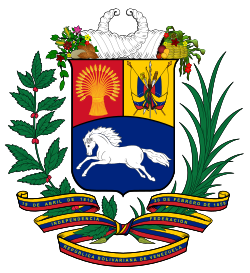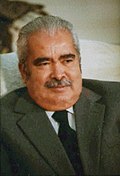| |||||||||||||||||||||
Presidential election | |||||||||||||||||||||
| Turnout | 87.56% | ||||||||||||||||||||
|---|---|---|---|---|---|---|---|---|---|---|---|---|---|---|---|---|---|---|---|---|---|
| |||||||||||||||||||||
 | |||||||||||||||||||||
| |||||||||||||||||||||
 |
|---|
General elections were held in Venezuela on 3 December 1978. [1] The presidential elections were won by Luis Herrera Campins of Copei, who received 47% of the vote. [2] Although Copei received more votes, Democratic Action won the most seats in the Chamber of Deputies, whilst the two parties won 21 seats each in the Senate. Voter turnout was 88%. [3]






